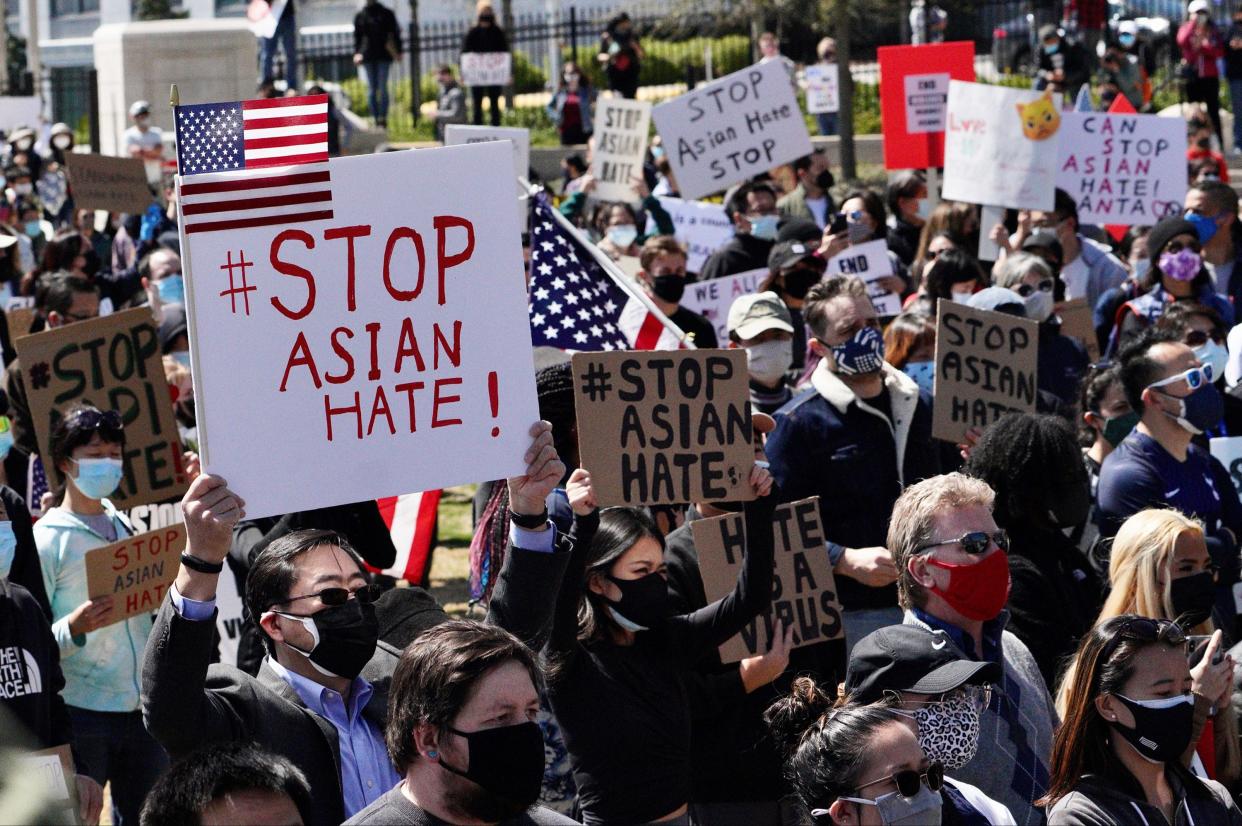Full picture of Illinois hate crimes unknown due to underreporting, advocates say

Legal and anti-hate advocates say hate crimes are on the rise in Illinois but many are going unreported, which is prompting calls for reform to existing state laws.
Hate and discrimination were discussed during Thursday's House Public Safety and Violence Task Force session, attended virtually by a group of representatives and advocates, which revealed growing state and national trends.
There were 8,263 hate crime cases reported to the FBI nationwide in 2020, up from 7,287 the prior year, where state attorneys general collect this information and share with the bureau to create its Uniform Crime Reporting Program. For the same year, 75 hate crimes were reported in Illinois compared to 65 reported cases in 2019.
The numbers do not tell the whole story, said Julie Justicz, chief strategy officer of the Chicago Lawyers' Committee for Civil Rights. Justicz recalled several instances over the years where hate crimes were not reported.
"It's pretty clear that for a long time and continuing through today, hate crimes are significantly underreported," she said. In 2019, 86% of local law enforcement agencies reported zero cases.
Justicz owed the underreporting to several issues, most notably due to a lack of funding and staffing to carry out the mandate. The training needed to both identify and document bias motivation is also missing, both for law enforcement and victims, she said.
As representatives said, the effects of the hate crime surge are being felt by both racial and social minorities, such as the LGBTQ+ community. It comes as the Southern Poverty Law Center reports that 23 hate groups have made a home in Illinois.
The majority of hate crimes, approximately 61 percent, reported by the FBI were motivated due to racial and ethnic biases with sexual orientation being the second most-targeted group of hate crimes. Attacks against members of the LGBTQ+ community have increasingly become an issue, where, according to the Human Rights Commission Epidemic of Violence 2021 report, at least 47 deaths occurred in the transgender and gender non-conforming community — the most since the beginning of data collection in 2013.
Related:Springfield pastor visited Buffalo shooting site: 'Open your mouth' against hate, racism
Similar to Muslim Americans facing racial attacks following 9/11, Asian Americans increasingly became the target because of COVID-19, said Abbey Eusebio, the anti-hate action center manager with the Chinese American Service League. Research from the Center for the Study of Hate and Extremism at California State University examined this trend, where hate crimes against Asian Americans increased by 339% since 2020. These attacks add to what Eusebio referred to as the "myth of the perpetual foreigner," where those born in the U.S. still feel like outsiders.
"Asian Americans are actually the least likely racial group in the U.S. to feel like they completely belong," she said.
Hate crimes also are on the rise against members of the Jewish and Muslim faiths. According to the Anti-Defamation League, a 430% increase in hate crimes has occurred since 2016 — this experience being felt in schools and seen on flyers spread throughout the state, said Director David Goldenberg.
Irshad Khan, chair of The Council of Islamic Organization of Greater Chicago, said hate has come in the form of bomb threats at mosques, including the FBI's interception of a plot by three Illinois men to carry out an attack in Chicago earlier this year.
Khan said a celebration of his community, instead of the prominent negative portrayal, is needed to prevent threats from becoming deadly.
To counter underreporting and a hate crime surge, Illinois Department of Human Rights Director Jim Bennett said a platform has been created to address these shortcomings. Recommendations from IDHR include increased training for law enforcement to identify hate crimes, improved community outreach and a new hotline separate from law enforcement.
More:From discounts to insurance, here are 5 new laws going into effect July 1 in Illinois
As Bennett explained, service agencies are where many victims turn in moments of crisis. To assist these organizations, he encouraged the creation of a grant program to provide state funding.
"Our goal is to not replace any existing resources, but to better coordinate and expand what exists to provide a more comprehensive and holistic approach," he said.
Rep. Patrick Windhorst, R-Metropolis, understood that neither the SAFE-T Act or the Pretrial Fairness Act would determine hate crime offenders to be detainable, which would allow the alleged perpetuator to be released within 48 hours.
The SAFE-T Act, passed in 2021, will eliminate cash bail starting Jan. 1, 2023, so Windhorst said the General Assembly might need to review the legislation.
The session comes almost three months after Illinois Attorney General Kwame Raoul filed a hate crime lawsuit following alleged racial intimidation by two white Carroll County residents against a Black neighbor.
This was the first lawsuit made by the office since a 2018 amendment to the Illinois Hate Crimes Act, which permits civil lawsuits to be filed against hate criminals. According to the lawsuit, Raoul alleges Chad Hampton and his mother, Cheryl, intimidated their neighbor, Gregory Johnson, by using a noose to lynch a chained effigy of a Black man resembling him.
Contact Patrick Keck: 312-549-9340, pkeck@gannett.com, twitter.com/@pkeckreporter
This article originally appeared on State Journal-Register: Task force calls for new tactics in addressing increase in hate crimes

